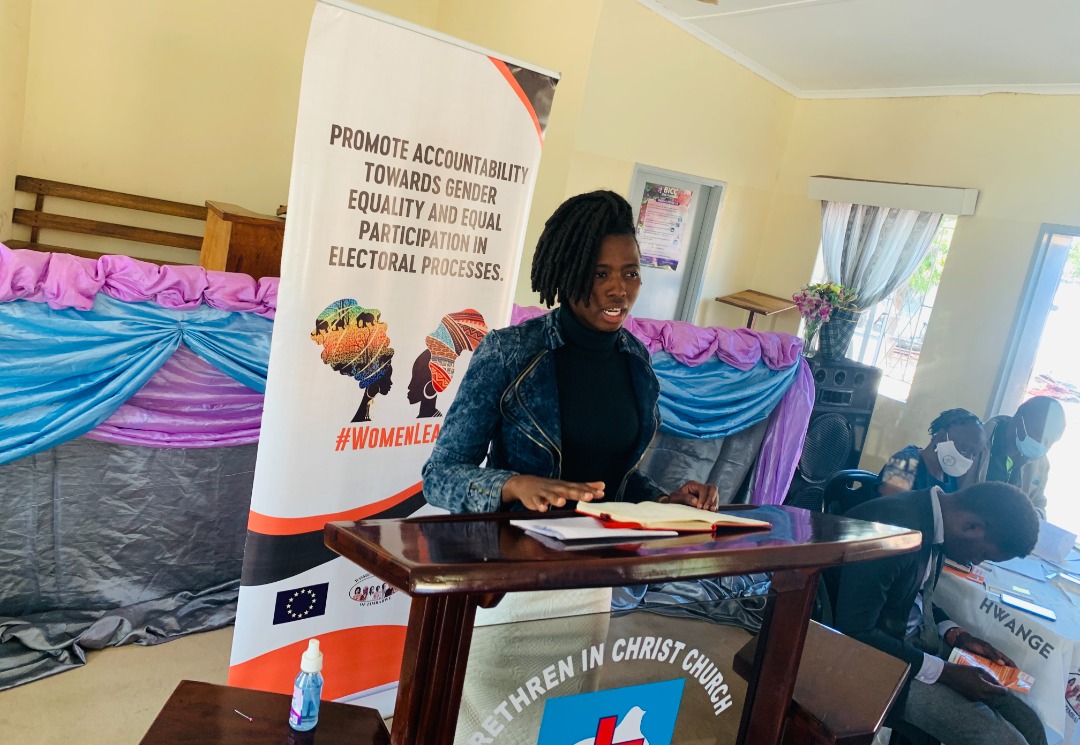
Source: Women’s Coalition of Zimbabwe Facebook Page
Young women in Bulawayo engaged on a public debate on climate change on Friday the 9th of July 2022, and event which saw a number of relevant issues being discussed on the effects of climate change. Two teams comprising of four young women engaged on a social debate session tackling climate change under the topic “The effects of climate change are not gendered nor are vulnerabilities different across the ages as climate change is an evil that impacts negatively and equally on everyone’s lives.”
The debate was also a part of this year’s International Women’s Day commemorations which held on the 8th of March every year. This year’s theme was “Gender equality today for a sustainable tomorrow, #BreakTheBias.” The event was conducted by Women’s Coalition of Zimbabwe in Partnership (WCoZ) in partnership with Norwegian People’s Aid (NPA) as a way to encourage young women to participate in raising awareness on social, economic and political issues and to break the bias (#BreakTheBias) on young women’s knowledge and presence on such and conversations.
The judges who presided over the debates were Ruth Sibanda of the National Youth Council and Justice Zvaita of the Zimbabwe Climate Change Coalition. Both judges highlighted that more research could have been done to increase weight on the arguments brought forward by the debaters. However, they praised the initiative saying they are necessary exercises that help in educating young women on issues that have significant impacts on their lives and their future. Justice Zvaita called for more debates and discussions from WCoZ citing that they will help young women in conduction more research and acquiring knowledge on prevailing issues posed by climate change. The debates are also meant to strengthened capacities and advanced effective participation of young women in public, private and civic spaces influencing decision-making as well as influencing gender-responsive policy-making and implementation through organized advocacy engagements in political and socio-economic processes.
The arguments in the debates highlighted that women and children are impacted more by the effects of climate change. Women as natural caregivers are the ones who have been affected the most in ensuring the best wellbeing of their families. The arguments also highlighted how much the economy is also impacted by the prevailing climate change and its effects. One debater argued that climate change has a longer lasting effect on women from the third world countries due to poverty, and financial constraints that hinder adaptability and rebuilding after damage and loss that caused by natural disasters, a direct effect of climate change.
This was said referencing the cyclone Idai disaster that happened a few years back and until today measures of rebuilding are still in place, yet other natural disasters Zimbabwe is an agro-based nation and a majority of its citizens depend on farming for their living. The changing climates has affected rainfall patterns which has deeply impacted the food security of the nation.
WCoZ partnered with NPA in launching the Amplifying Young Women’s Voice for Equality and Non-Discrimination initiative in 2020. This is a project that has seen the coordination and facilitation of young women’s movement building and stimulating collective advocacy to respond to new and emerging issues that affect young women. The project has helped young women in Bulawayo, Gwanda and Hwange to build their organizing capacity and demanding accountability to duty bearers on their political, social and economic rights for the past two years. In its third year of implementation, the project is focusing on enhancing young women’s leadership skills to effectively participate in democratic processes as well as engaging in collective action and decision-making in public, private and civic spaces.




